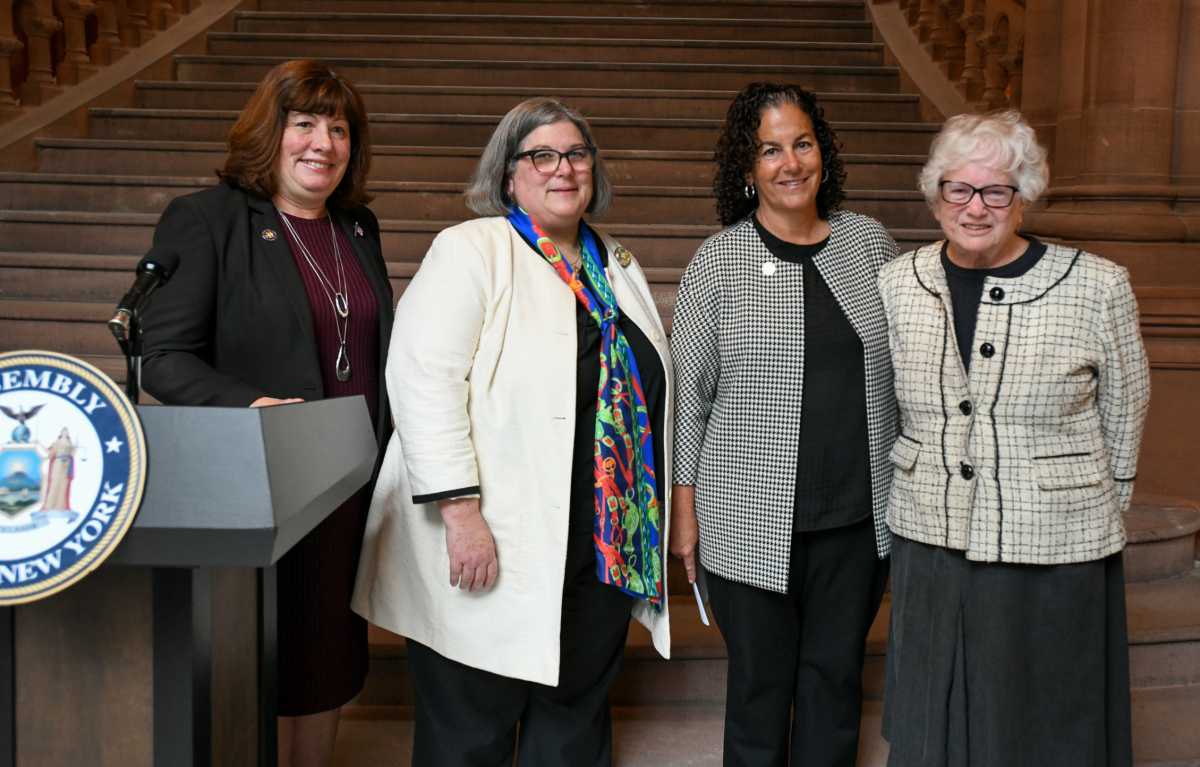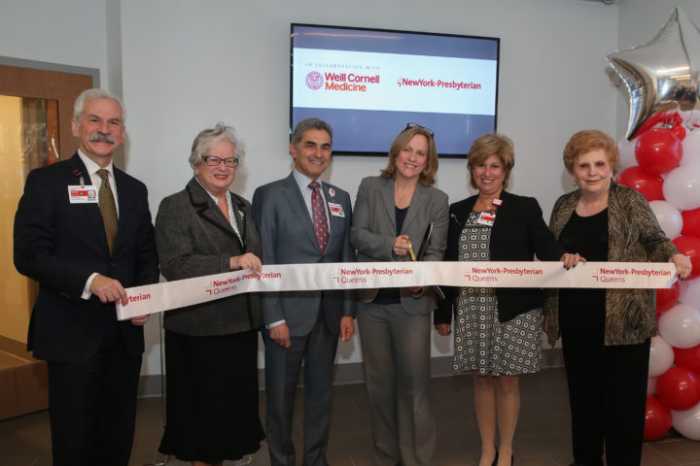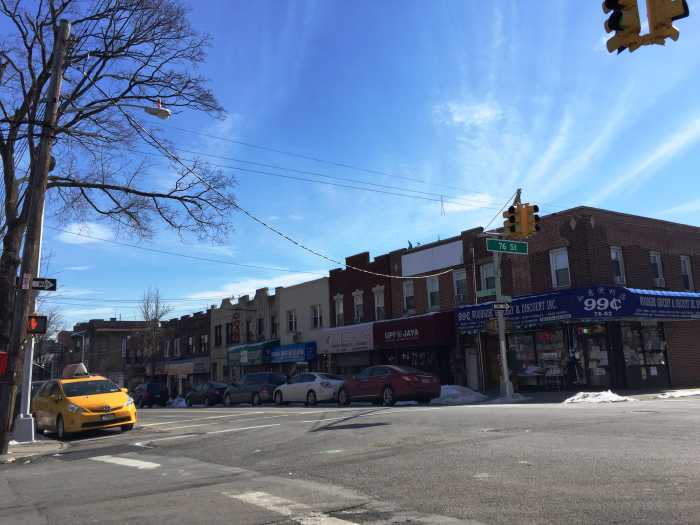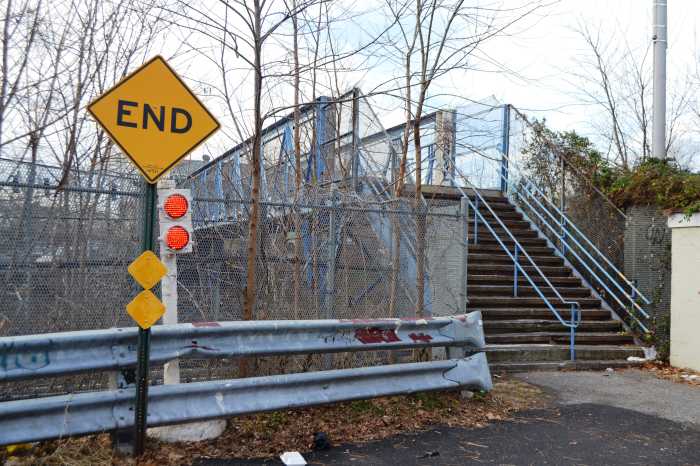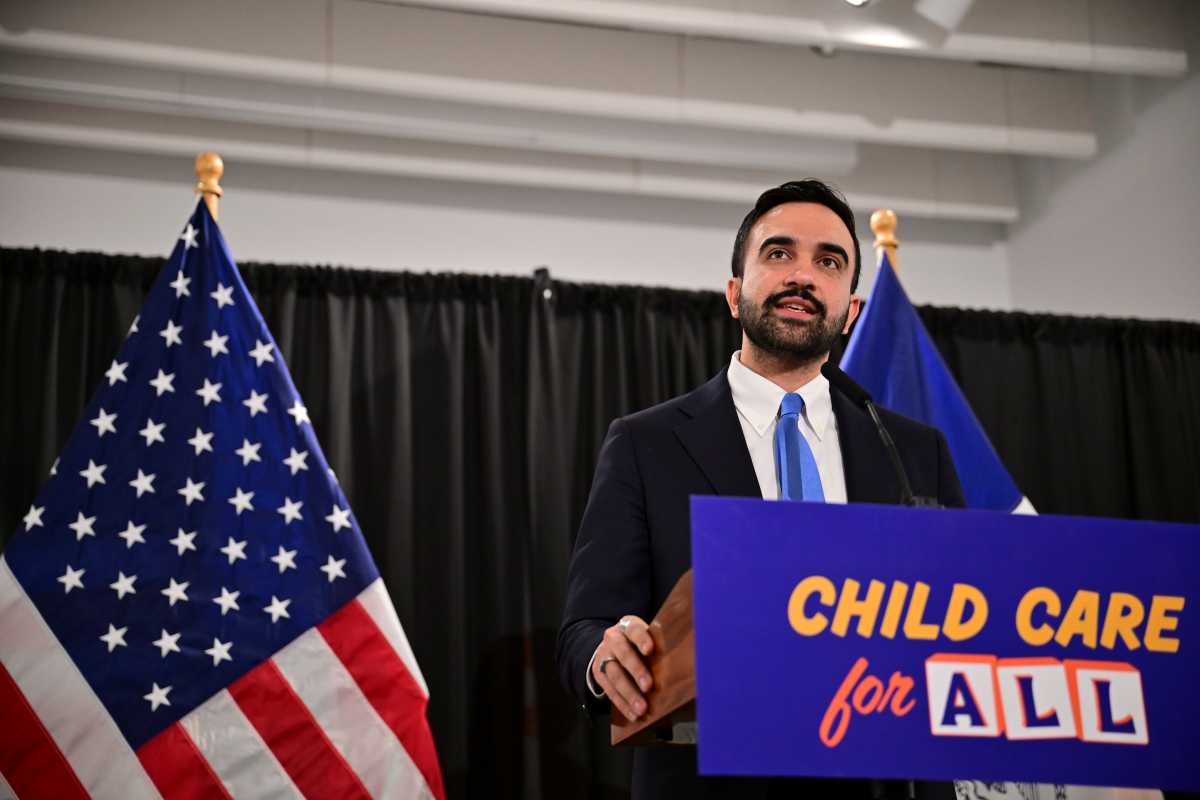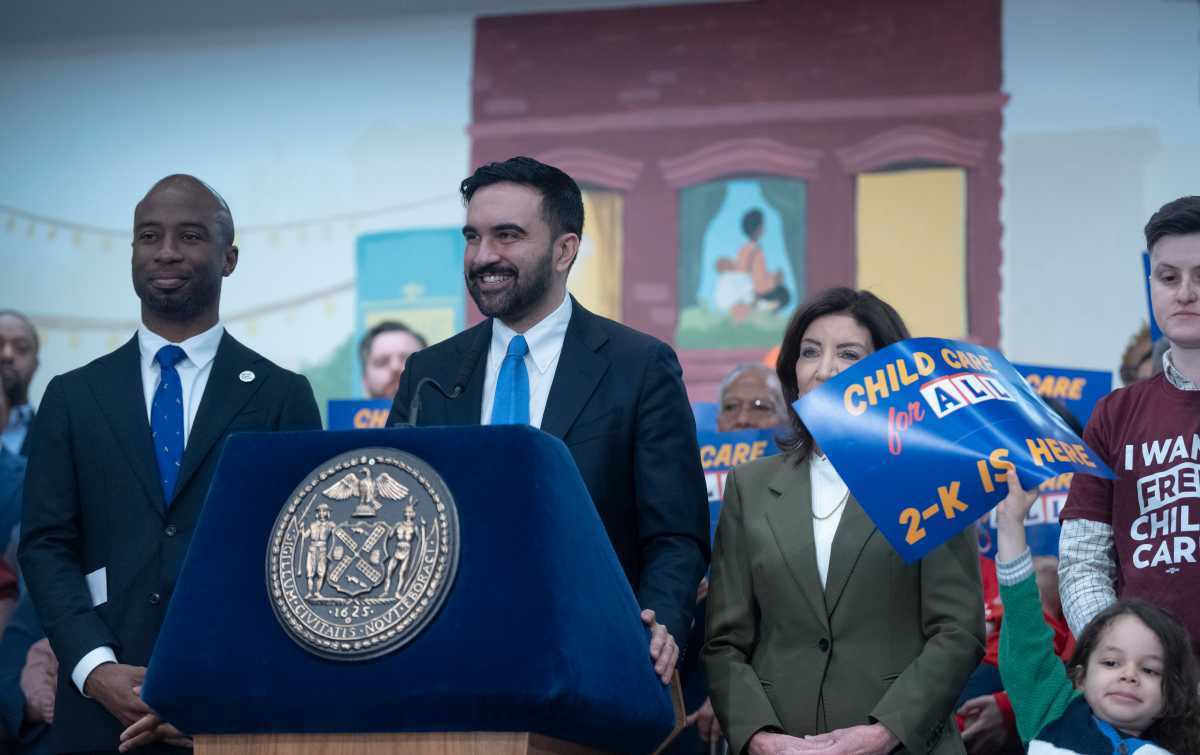Senator Toby Stavisky and state Assemblywoman Stacey Pheffer Amato are honoring the victims of crimes through two sets of historic legislation and commemorative resolutions introduced in the Assembly and Senate during New York State Crime Victims’ Rights Week.
Stavisky and Pheffer joined Assembly members Carrie Woerner and Marianne Buttenschon at the state Capitol in Albany on Tuesday, April 26, to discuss “Emma’s Law” and another bill that will assist victims at parole hearings.
“Victims of all crimes, whether felony or misdemeanor, can carry scars from the incident for years,” Stavisky said. “Often, these are emotional scars that are present for years. Allowing victims of misdemeanors to give impact statements at sentencing can often help in the process of healing and providing closure.”
“Emma’s Law” will allow victims of misdemeanors to make an impact statement at sentencing, an opportunity that is currently only offered to victims of felony offenses. Although misdemeanors are lesser crimes than felonies, they often result in significant mental trauma. The ability to present an impact statement can help empower survivors to restore a sense of control over their own lives and provide emotional closure.
Additionally, the legislators discussed a bill, A.9074, sponsored by Amato and Stavisky that will assist victims at parole hearings.
This bill will require district attorneys to inform victims of their right to submit a victim impact statement for review during the parole process. It will also ensure that victims are alerted to upcoming parole hearings and understand their right to testify at that hearing.
“For too long we have forgotten about the victim, a person who has survived a crime,” Amato said. “We believe that victims have a voice, and it needs to be amplified in all aspects of our criminal justice system. Our survivors need to be heard and be part of the process. Leaving survivors out of the equation makes them voiceless — and this is no longer acceptable. Survivors matter and we must give them the opportunity to express how a crime has impacted their life.”

